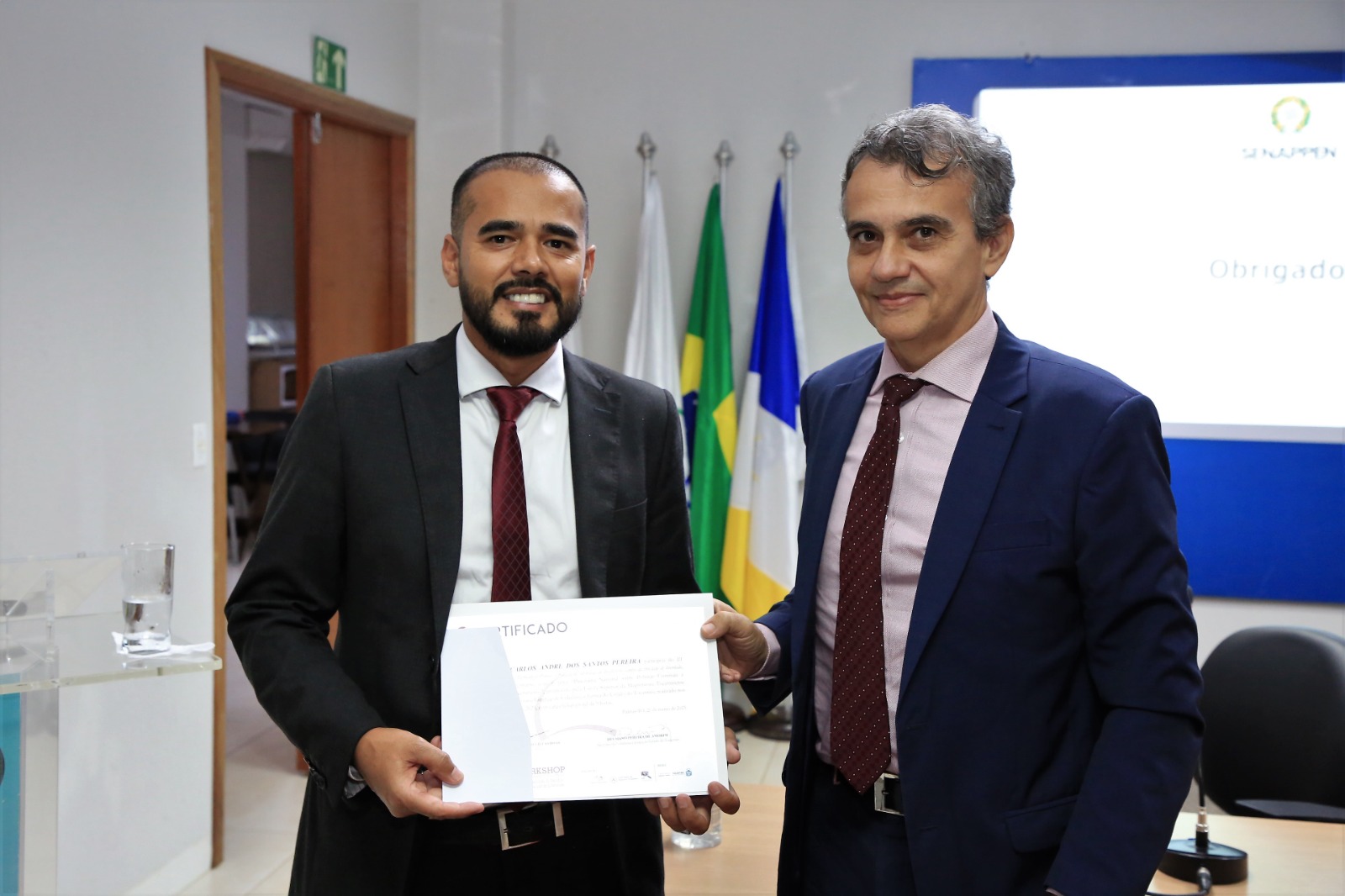
The Superior School of the Judges of the State of Tocantins (ESMAT) held on the afternoon of Tuesday (21st), the first day of the third edition of the State Workshop on Penal Alternatives, with the theme on “Strategy to overcome challenges in the field of deprivation of liberty”. In this first moment, strategies and challenges to overcome the deprivation of liberty were debated, through investment in disincarceration initiatives.
During the opening ceremony, Judge Allan Martins Ferreira, representative of the Prison System Monitoring and Supervision Group of the State of Tocantins, stressed the importance of disseminating the non-incarceration policy.
"There is a whole policy aimed, today, at improving the entire penal cycle. (...) Here in the State of Tocantins, we have outlined the whole policy, we have servers who are very well trained and have a huge potential and who can transform the policy of not incarcerating into a reality that will bring social peace and will prevent people from reoffending. I think this is the main role," he said.
Secretary Deusiano Amorim, from the State Secretariat of Citizenship and Justice of the State of Tocantins, was also present at the event. In his speech, Deusiano highlighted the commitment of the Secretariat and effort in the construction of incarceration policies.
For the Public Defender Fabrício Silva Brito, representing the Office of the Public Defender of the State of Tocantins, the alternative measures must be thought beyond punishment. Acting in a way that reintegrates those in custody.
"I say that penal execution, if it is not thought of in this way, of alternative measures, it is an eternal drying up of ice. The discussion on penal alternatives and new tools for penal execution are essential for us to move forward in this chaotic system that is the prison system (...). It is important that we can always be discussing new alternatives so that we can really move forward and seek the other side of the penalty, which, besides the bias of punishment, also has the bias of social reintegration.
Representing the OAB Tocantins Sectional, the Attorney Giovanna Helena Monteiro Ferraz also spoke about the need to analyze the criminal alternatives seen from a human rights perspective.
"This discussion here at the Workshop in relation to the penal alternatives and all these changes are very important not only to help the convicted person, but also to help society, to all those who are involved in this system. Because it is not possible to think only about the penal issue, we have to think about the social and human rights issue. That's why this theme brought here is extremely important, and the OAB is very grateful to be able to participate in this event.
According to the lawyer Sibele Letícia Rodrigues de Oliveira Biazotto, representative of the Penitentiary Council, the event is an opportunity to develop reflections and debates about non-incarceration.
“How important it is for a society to solve these problems linked to people deprived of freedom; (…) after the Workshop, that we can give a front here in the State of Tocantins on the issue of these alternative measures to incarceration (…) I hope that the reflections reach as many people as possible; that these reflections can show new paths other than incarceration. Sometimes, alternative sentences bring much more results than the custodial sentence.”
The opening ceremony was attended by Lucivania Pereira Carneiro, representing the Community Council, and Mayesse Silva Parizi, representing the National Secretariat of Penal Policies (MJSP).
Taught by the national coordinator of Criminal Alternatives of SENAPPEN/MJSP, Carlos Andre dos Santos, the opening lecture had as its theme the "National Overview of Criminal Policies and Alternatives to Imprisonment".
"The time has come for us to change the lens, we can't talk about the prison system thinking only about those who are in prison, we need effective policies, to make it more viable, that these people, when serving their sentence, have the fundamental rights and guarantees and, when there is a possibility, they stop entering the prison system, because we are going to have effective public policies to be able to receive these people still at the entrance door, so that we have a complete justice system."
The Workshop will continue debating the construction of alternative penal policies that can explore the gaps in hegemonic punitivism until tomorrow (22nd).




